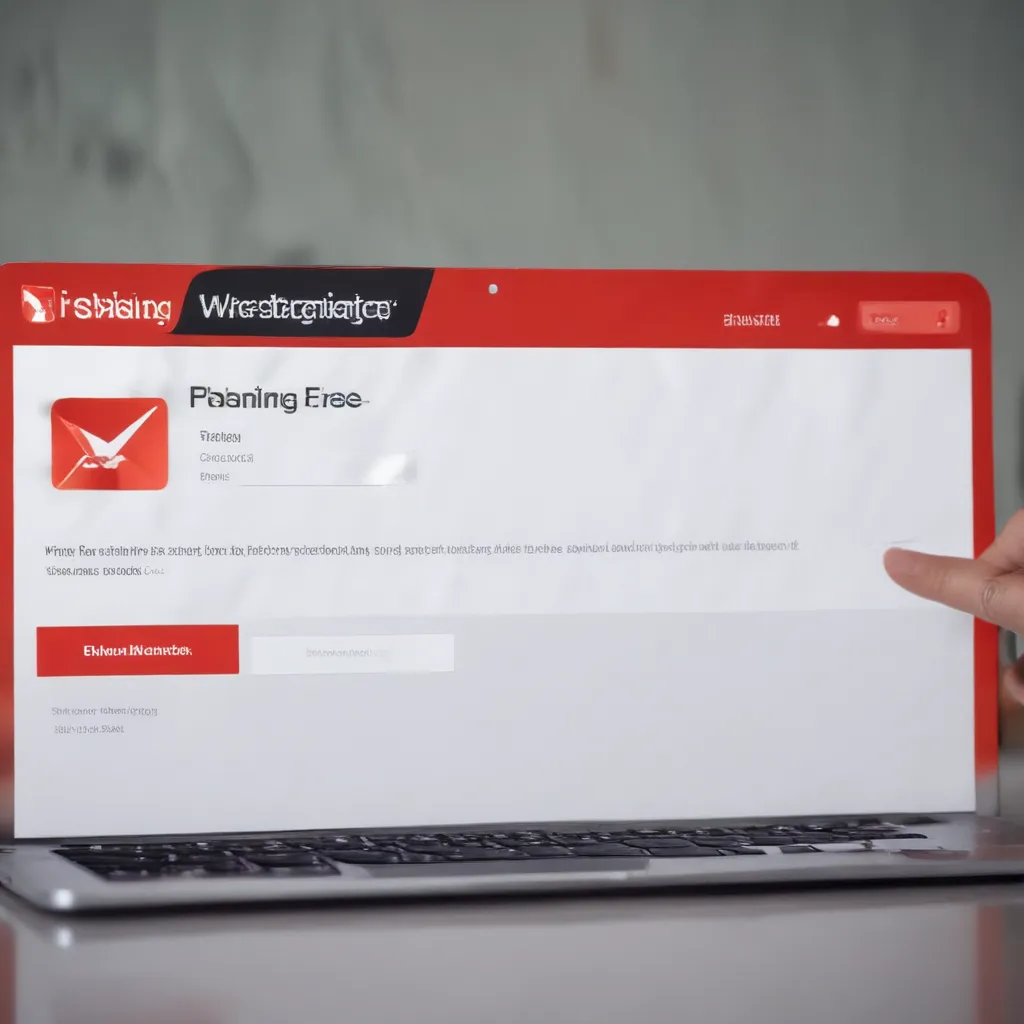The Sneaky Tricks of Online Scammers
Have you ever received an email or text message that just didn’t seem right? Maybe it was from your “bank” claiming there was suspicious activity on your account, or a message from a long-lost “friend” asking for money. These are just a few examples of the clever tactics scammers use to try and trick unsuspecting victims.
As someone who runs a computer repair service in the UK, I’ve seen firsthand how devastating online fraud can be. Identity theft, phishing schemes, fake rental listings – the list goes on. Scammers are constantly dreaming up new ways to steal your hard-earned money and personal information. But don’t worry, I’m here to share my expertise and help you spot the red flags before it’s too late.
Anatomy of a Phishing Attack
Let’s start by taking a closer look at phishing, one of the most common and dangerous online scams. Phishing emails and text messages often try to create a sense of urgency or fear to pressure you into clicking a malicious link or handing over sensitive information. [1] For example, you might receive an email claiming there’s been suspicious activity on your bank account, and the only way to protect your money is to click a link and “verify” your login credentials.
Sounds convincing, right? That’s the whole point. Scammers will go to great lengths to make their messages appear legitimate, even going so far as to spoof the logo and branding of trusted companies. [2] But if you look closely, there are usually telltale signs that something is amiss.
Red Flags to Watch Out For
One of the biggest red flags is poor grammar and spelling. Reputable businesses tend to have high standards when it comes to their communications. Scammers, on the other hand, often rely on sloppy, hastily written messages to get your attention. [3]
Another thing to watch out for is vague or generic language. Phrases like “Dear customer” or “Urgent action required” are classic phishing tactics, designed to cast a wide net and hook as many victims as possible. [4]
And of course, there’s the trusty old URL test. Hover over any links in the message and see if the URL matches the company it’s claiming to be from. Spoiler alert: it probably doesn’t. Legitimate businesses will almost always use a secure, HTTPS-enabled website. [5]
Don’t Get Caught in the Rental Trap
Phishing scams aren’t the only way scammers try to steal your money and information. They’re also notorious for creating fake rental listings, often using stolen photos and contact information to lure in unsuspecting tenants. [6]
These rental scams can be especially tricky, as the perpetrators often go to great lengths to make their listings appear genuine. They may even create professional-looking websites or social media pages to give the illusion of legitimacy. But if you dig a little deeper, the red flags start to emerge.
Look for vague or generic descriptions, unusually low rents, and a sense of urgency to get you to send a deposit or sign a lease without seeing the property in person. [6] And be wary of any landlord who insists on cash or money transfers as the only acceptable form of payment. Those are telltale signs that something fishy is going on.
Protecting Yourself and Your Loved Ones
Scammers are constantly evolving their tactics, but the core principles of spotting a fake remain the same. Always be skeptical of unsolicited messages, double-check the legitimacy of any website or contact information, and never share sensitive data like passwords or bank details unless you’re absolutely certain it’s safe to do so.
And remember, you’re not alone in this fight. Reach out to friends, family, and trusted organizations like the Federal Trade Commission [7] or the Social Security Administration [8] if you ever have concerns about potential fraud. By working together, we can stay one step ahead of these sneaky scammers and keep our hard-earned money where it belongs – in our own pockets.













